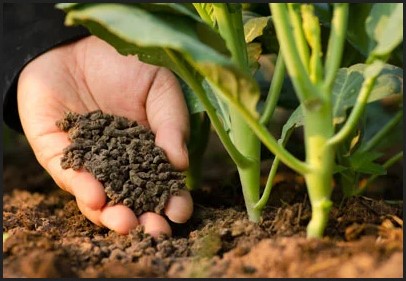From Garden to Table: Embracing Organic Gardening in Your Home

From Garden to Table: Embracing Organic Gardening in Your Home is a comprehensive guide to growing your own organic produce. It provides readers with the knowledge and tools to create a thriving organic garden in their own backyard. This book covers everything from soil preparation and planting to harvesting and preserving. It also includes tips on how to use your harvest in delicious recipes. With this book, you can learn how to create a sustainable and healthy garden that will provide you with fresh, organic produce for years to come.
How to Start an Organic Garden in Your Backyard: Tips and Tricks for Beginners
Organic gardening is becoming increasingly popular as people become more aware of the environmental and health benefits of growing their own food. If you’re interested in starting an organic garden in your backyard, here are some tips and tricks to help you get started.
1. Choose the right location. When selecting a spot for your garden, make sure it gets at least six hours of direct sunlight each day. Also, consider the soil type and drainage. If the soil is too sandy or clay-like, you may need to amend it with compost or other organic matter.
2. Start small. Don’t try to do too much too soon. Start with a few easy-to-grow vegetables such as tomatoes, peppers, and lettuce. Once you’ve mastered those, you can move on to more challenging plants.
3. Use organic fertilizers and pest control. Chemical fertilizers and pesticides can be harmful to the environment and your health. Instead, use natural fertilizers such as compost or manure, and natural pest control methods such as companion planting and hand-picking pests.
4. Water wisely. Overwatering can lead to root rot and other problems. Make sure to water your plants deeply but infrequently.
5. Mulch. Mulching helps retain moisture and keep weeds at bay. Use organic mulch such as straw, grass clippings, or shredded leaves.
6. Rotate crops. Planting the same crops in the same spot year after year can deplete the soil of essential nutrients. Rotating crops helps keep the soil healthy and productive.
7. Have patience. Organic gardening takes time and effort, but the rewards are worth it. With patience and dedication, you can create a thriving organic garden in your backyard.
The Benefits of Eating Freshly Grown Organic Produce: A Guide to Eating Healthier and Supporting Local Farmers
Eating organic produce is becoming increasingly popular as people become more aware of the health benefits associated with it. Organic produce is grown without the use of synthetic fertilizers, pesticides, or other chemicals, and is often fresher and more nutrient-dense than conventionally grown produce. Eating organic produce can help you to improve your overall health and well-being, while also supporting local farmers and the environment.
Organic produce is generally higher in essential vitamins and minerals than conventionally grown produce. This is because organic produce is grown in nutrient-rich soil, which helps to ensure that the produce is packed with essential vitamins and minerals. Additionally, organic produce is free from synthetic fertilizers and pesticides, which can be harmful to your health. Eating organic produce can help to reduce your exposure to these potentially harmful chemicals, while also providing you with more nutrients.
Organic produce is also fresher than conventionally grown produce. This is because organic produce is grown without the use of preservatives or other chemicals, which can reduce the shelf life of produce. Eating fresh organic produce can help to ensure that you are getting the most out of your food, as it will be packed with more nutrients and flavor.
Eating organic produce is also a great way to support local farmers. By buying organic produce, you are helping to support local farmers who are committed to growing food in a sustainable and environmentally friendly way. This helps to ensure that the food you are eating is of the highest quality, while also helping to support the local economy.
Finally, eating organic produce is also beneficial for the environment. Organic farming practices help to reduce soil erosion, conserve water, and reduce air and water pollution. By eating organic produce, you are helping to reduce your environmental impact and contribute to a healthier planet.
In conclusion, eating organic produce is a great way to improve your health, while also supporting local farmers and the environment. Organic produce is higher in essential vitamins and minerals, fresher, and free from synthetic fertilizers and pesticides. Eating organic produce can help to reduce your exposure to potentially harmful chemicals, while also providing you with more nutrients and flavor. Additionally, buying organic produce is a great way to support local farmers and reduce your environmental impact.
Conclusion
From Garden to Table: Embracing Organic Gardening in Your Home is an invaluable resource for anyone looking to start their own organic garden. It provides detailed instructions on how to plan, plant, and maintain an organic garden, as well as tips on how to use the produce in delicious recipes. With its comprehensive approach to organic gardening, From Garden to Table is an essential guide for anyone looking to grow their own organic produce.